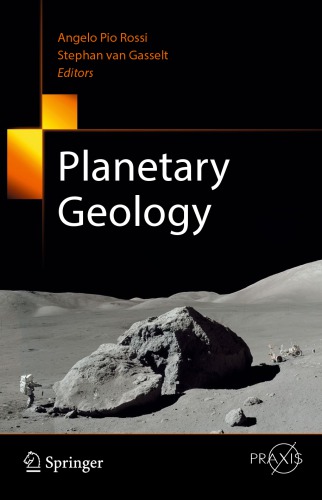

Most ebook files are in PDF format, so you can easily read them using various software such as Foxit Reader or directly on the Google Chrome browser.
Some ebook files are released by publishers in other formats such as .awz, .mobi, .epub, .fb2, etc. You may need to install specific software to read these formats on mobile/PC, such as Calibre.
Please read the tutorial at this link: https://ebookbell.com/faq
We offer FREE conversion to the popular formats you request; however, this may take some time. Therefore, right after payment, please email us, and we will try to provide the service as quickly as possible.
For some exceptional file formats or broken links (if any), please refrain from opening any disputes. Instead, email us first, and we will try to assist within a maximum of 6 hours.
EbookBell Team

4.1
80 reviewsPlanetary research today is a strongly multidisciplinary endeavor with efforts coming from engineering and natural sciences. Key focal areas of study are the solid surfaces found in our Solar System. Some have a direct interaction with the interplanetary medium and others have dynamic atmospheres. In any of those cases, the geological records of those surfaces (and sub-surfaces) are key to understanding the Solar System as a whole: its evolution and the planetary perspective of our own planet.
This book has a modular structure and is divided into 4 sections comprising 15 chapters in total. Each section builds upon the previous one but is also self-standing. The sections are:
- Methods and tools
- Processes and Sources
- Integration and Geological Syntheses
- Frontiers
The latter covers the far-reaching broad topics of exobiology, early life, extreme environments and planetary resources, all areas where major advancements are expected in the forthcoming decades and both key to human exploration of the Solar System.
The target readership includes advanced undergraduate students in geoscience-related topics with no specific planetary science knowledge; undergraduates in other natural science domains (e.g. physics, astronomy, biology or chemistry); graduates in engineering and space systems design who want to complement their knowledge in planetary science.